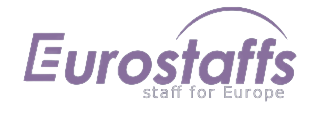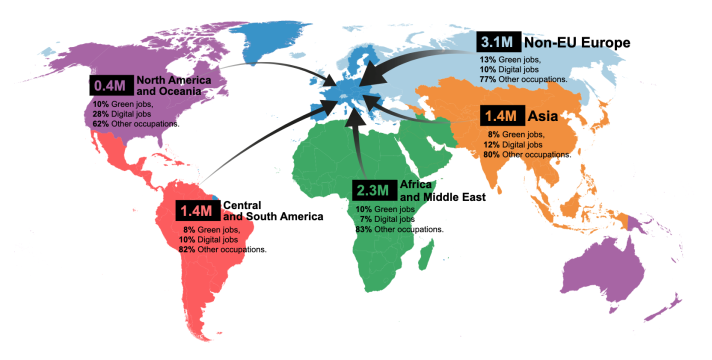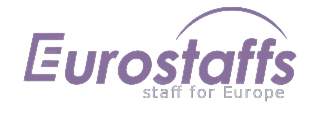How Migrant Workers Are Fueling Europe's Economy
How Migrant Workers Are Fueling Europe’s Economy
Europe’s economic vitality is increasingly
intertwined with the contribution of migrant workers. They are not only filling
critical labor shortages but also helping drive innovation, entrepreneurship,
and economic growth. This blog explores how migrant workers are playing a
pivotal role in supporting and sustaining Europe’s economy while also facing
integration challenges.
1. Migrants Boost Europe’s GDP
According to the European
Central Bank (ECB), foreign workers have accounted for nearly 50% of the labor
force growth in recent years, directly contributing to the eurozone’s GDP
growth. Countries like Spain have credited migrant labor for more than 50% of
their GDP growth, especially post-pandemic. These contributions are vital for
countries grappling with aging populations and declining birth rates.
Learn more about
how Europe is tackling job market issues on our Euro Staffs FAQs page.
2. Filling Critical Labor Gaps
Migrant workers often fill
jobs that are hard to staff—especially in agriculture, healthcare,
construction, and hospitality. For instance, Germany and Spain have seen
significant improvements in public services due to the influx of skilled and
unskilled migrant labor.
These roles are not just
supplementary—they are essential to keeping entire sectors functional,
especially in countries facing workforce shortages.
3. Migrant Entrepreneurship and
Innovation
Migrant workers
are also entrepreneurial. Studies show foreign-born individuals are more likely
to start businesses than native-born Europeans. These businesses not only
create jobs but also diversify local economies.
Additionally,
migrant-led businesses tend to tap into global networks, promoting cross-border
trade and innovation that benefits the EU as a whole.
4. Positive Fiscal Contributions
Despite common
misconceptions, most migrant workers pay more in taxes and social contributions
than they receive in public benefits. They contribute to public pensions,
social security, and healthcare systems—making them net contributors to the
economy.
EU data consistently shows
that migrant workers use fewer public services compared to native-born
citizens, particularly when it comes to housing and pensions.
5. Overcoming Skill Mismatches
One key challenge for migrant
workers is skill mismatch. Many are overqualified for the roles they are
employed in, often due to language barriers or lack of credential recognition.
This leads to underemployment and economic inefficiencies.
However, this is gradually
improving as more countries invest in integration programs, vocational
training, and language support services.
6. Integration and Social Challenges
Integration remains a
complex issue. Migrant workers often face discrimination, exploitation, and
bureaucratic barriers. Policies that facilitate legal entry, job matching, and
citizenship pathways can enhance integration and unlock long-term economic benefits.
Euro Staffs actively
promotes ethical recruitment and integration-friendly policies. Explore our services to learn how we support
migrants and employers.
7. Real-World Examples
·
Spain: Launched programs that fast-track
legal residency and employment, helping migrant workers contribute immediately.
·
Germany: Expanded vocational training
access for non-EU migrants, reducing reliance on welfare.
·
France: Supports female migrant workers
in care sectors, addressing both gender and labor gaps.
8. Humanitarian and Ethical Dimensions
Migrant workers are
not just economic contributors; they are human beings with aspirations,
families, and communities. A humane approach to migration not only makes
economic sense—it strengthens the fabric of European society.
Countries that
prioritize fair wages, worker rights, and inclusive policies reap both social
and economic rewards.
Conclusion
Migrant workers are fueling Europe’s economic
engine. They provide crucial labor, stimulate innovation, and contribute
fiscally. While challenges remain, inclusive policies, skill recognition, and
ethical practices can maximize the value migrants bring to the European
economy.
For job seekers and
students, visit our blog
for more articles on migration, employment, and education in Europe.
Call to Action
Want to work or hire in Europe? Contact Euro Staffs
today and be part of a future where opportunity meets dignity.

 French
French
 Arabic
Arabic
 English
English



